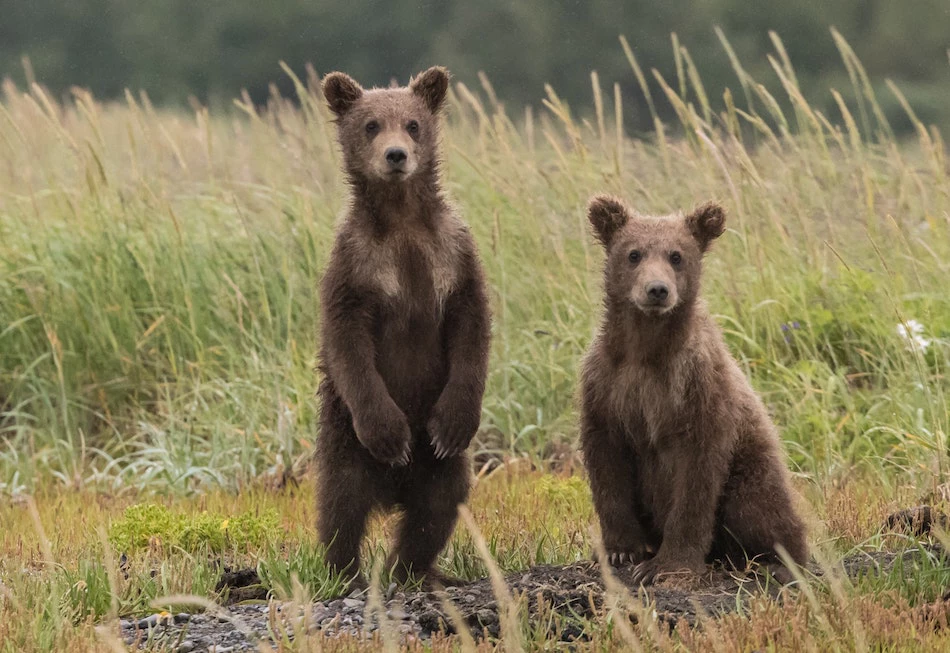Michigan Congressman Shri Thanedar has introduced legislation in Congress to forbid shooting bears with their heads in trash cans on our federal lands
WASHINGTON, D.C. — As bear hunting seasons open in Michigan, Minnesota, and Wisconsin, Animal Wellness Action strongly criticizes the states for permitting the unsporting, unsafe, and reckless practice of bear baiting — where trophy hunters and commercial guides set up garbage piles on national forests and other federal lands to lure bears to the sites and shoot them while they are feeding. It is a practice banned in two-thirds of states with bear hunting and it is the focus of a federal bill, H.R. 4422, to outlaw the practice on federal lands.

The U.S. Forest Service warns visitors to “never feed bears” because food-conditioned animals are more likely to lose their natural wariness and become dangerous. Yet, based on the most recent hunting data, at least 16,000 bears are killed over bait each year, with more than 10,000 of those kills occurring on federal lands. In states where baiting is legal, it is often the dominant hunting method, accounting for more than half of all bears taken.
Bear baiting started in Minnesota on September 1, while the practice started in Wisconsin on September 3. Michigan hunters can bait and shoot bears starting in mid-September, while baiting starts in Missouri a month later.
“Bear baiting is a disgrace and it is the antithesis of fair-chase hunting,” said Wayne Pacelle, president of Animal Wellness Action and the Center for a Humane Economy. “Hikers and other nature enthusiasts are put at risk by baiters who knowingly habituate bears to human food sources and increase the risk of dangerous encounters on hiking trails and at their campsites and cabins. Bears are also known to break into cars once they get a taste for human foods.”
In his piece “Garbaging for Bears,” award-winning outdoor writer Ted Williams pans bear baiting as unsporting and inhumane. “If you feed bears because you’re trying to photograph them, you’re likely to get busted,” notes Williams, a lifelong hunter and former state fish and wildlife information officer. “But feeding bears in twelve states and national forests in ten of those states is fine if you’re only trying to kill them.” He notes that hunters dump literally tons of pastry and meat scraps on our federal lands to lure bears into a guaranteed kill set-up.
There are more than 220 organizations that have endorsed the Don’t Feed the Bears Act, H.R. 4422, led by U.S. Rep. Shri Thanedar, D-Mich. “The practice of bear baiting creates danger for both people and animals, contradicting what federal agencies tell the public: do not feed bears,” said Rep. Thanedar. “This bill is about strengthening public safety, animal welfare, and responsible wildlife management.”
In July 2024, the U.S. Fish and Wildlife Service issued a final rule to forbid bear baiting on 20 million acres of national preserves. “This rule will lower the probability of visitors encountering a bait station where bears may attack to defend a food source. Further, this rule will lower the risk that bears will associate food at bait stations with humans and become conditioned to eating human-produced foods, thereby creating a public safety concern,” wrote the agency in its final rule. A generation ago, voters in Colorado, Massachusetts, Oregon, and Washington banned bear baiting by approving citizen ballot measures.
The United States has long banned any baiting of waterfowl. And most states ban baiting of deer, elk, and moose in states where hunting of the cervids is permitted.

